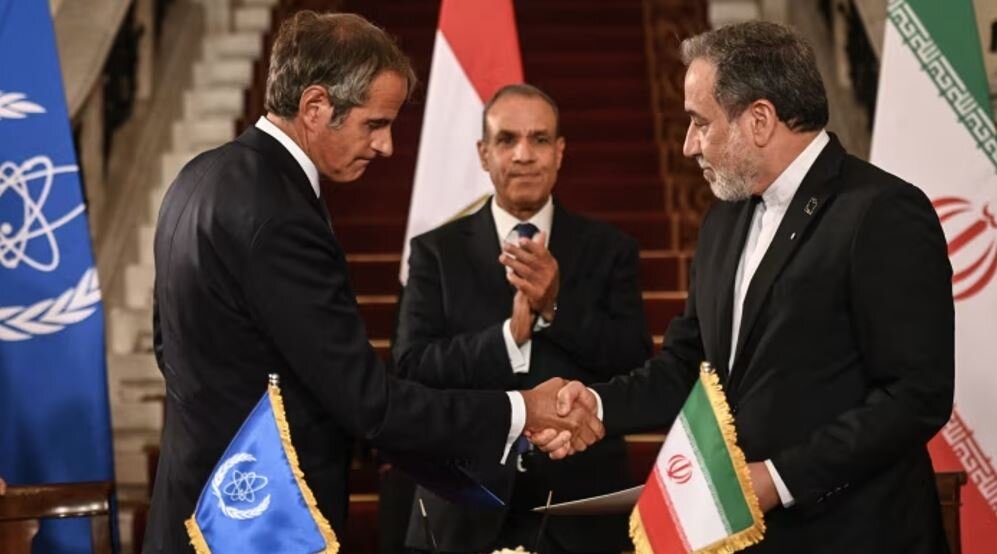‘Don’t repeat failed threats’: Grossi’s remarks draw anger and skepticism in Iran

TEHRAN – In remarks made on Thursday, Iran’s Foreign Minister cautioned the head of the United Nations’ nuclear watchdog against employing confrontational language, stating that such an approach would result in “nothing but another defeat.”
The remarks from Foreign Minister Abbas Araghchi targeted Rafael Grossi, Director General of the International Atomic Energy Agency (IAEA).
The informal diplomatic exchange was triggered by comments from Grossi in an interview with the Swiss daily Le Temps, where he assessed the impact of illegal U.S.-Israeli strikes on Iranian nuclear facilities this past June. While acknowledging the attacks caused “considerable damage” to sites in Isfahan, Natanz, and Fordow, Grossi noted that Iran’s fundamental technical expertise and enrichment capabilities remained intact.
Responding to the assessment, Araghchi expressed skepticism about the IAEA chief's intentions. “I don’t know whether he made that statement out of concern or as a threat,” Araghchi was quoted as saying in Iranian media. “But those who make such threats must realize that repeating a failed experience will yield nothing but another defeat for them.”
The reaction coincided with a significant procedural shift. Iran’s Foreign Ministry has formally announced the expiration of UN Security Council Resolution 2231, which originally endorsed the 2015 nuclear deal, known as the JCPOA. Tehran maintains that with the resolution's expiry, the restrictions it imposed are no longer applicable.
Grossi, in his interview, provided a detailed technical perspective that appeared to counter earlier justifications for military action. He confirmed that Iran’s stockpile of enriched uranium—approximately 400 kilograms enriched to 60%—remains below the 90% typically considered weapons-grade. “Even so, we have no evidence whatsoever that Tehran intends to build a nuclear weapon,” Grossi stated, adding that most of the material continues to be securely stored at sites under IAEA monitoring.
The Director General also pushed back against the narrative that preceded the June strikes, which were the first coordinated large-scale attacks by the U.S. and Israel on Iranian nuclear and military sites. U.S. President Donald Trump had justified the action by claiming Iran was nearing nuclear weapons production, though no public evidence was provided.
“Countries that independently follow Iran’s program have reached the same conclusion as we have,” Grossi said, “Iran’s activities remain stable, traceable and not directed toward weaponization.”
Striking a conciliatory note, Grossi commended Iran for its diplomatic posture in the wake of the intense 12-day conflict that followed the strikes, which saw Iranian retaliatory attacks on Israeli-occupied territories and a U.S. base. He suggested that Iran’s current limitations on inspector access are a product of legitimate security anxieties.
“After the twelve-day war, Iran could have chosen isolation—cut off dialogue, withdrawn from the Non-Proliferation Treaty and taken a more confrontational path. But it did not,” Grossi observed. “Instead, Tehran opted to remain engaged. It shows a willingness to preserve diplomacy even under intense pressure. Given the recent attacks on its sovereign sites, that caution is understandable.”
Emphasizing the path forward, the IAEA chief highlighted ongoing communication. “I remain in regular contact with Foreign Minister Abbas Araghchi, and our focus is on maintaining diplomatic momentum,” Grossi concluded. “If diplomacy continues, there is no reason for force to return to the equation.”
Leave a Comment